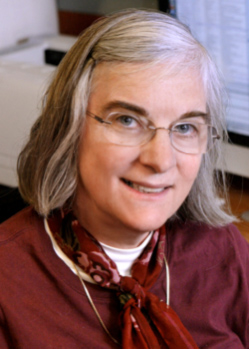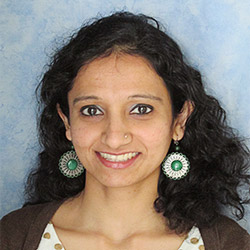 Dr. Felicia Moore Mensha is an Associate Professor of Science Education within the department of Mathematics, Science and Technology at Teachers College Columbia University, New York City. Dr. Mensha’s main interest and expertise is urban elementary science education, diversity, the improvement of teacher education and professional development.
Dr. Felicia Moore Mensha is an Associate Professor of Science Education within the department of Mathematics, Science and Technology at Teachers College Columbia University, New York City. Dr. Mensha’s main interest and expertise is urban elementary science education, diversity, the improvement of teacher education and professional development.
 Dr. Thomas Gregor is an Assistant Professor of physics and a member of the Lewis-Sigler Institute for Integrative Genomics at Princeton University. Dr. Gregor directs the Laboratory for the Physics of Life, where questions at the interface between physics and biology are investigated. A major interest of his lab is to identify the rules of self-assembly during embryonic development, as well as how cells interact and come together in increasing levels of complexity to finally form an organism, starting from a single cell.
Dr. Thomas Gregor is an Assistant Professor of physics and a member of the Lewis-Sigler Institute for Integrative Genomics at Princeton University. Dr. Gregor directs the Laboratory for the Physics of Life, where questions at the interface between physics and biology are investigated. A major interest of his lab is to identify the rules of self-assembly during embryonic development, as well as how cells interact and come together in increasing levels of complexity to finally form an organism, starting from a single cell.
 Dr. Gertrud Schüpbach is a member of the National Academy of Sciences and the American Academy of Arts and Sciences. She is a Howard Hughes Medical Institute Investigator and the Henry Fairfield Osborn Professor of Biology, Professor of Molecular Biology at Princeton University. Dr. Schüpbach is also an adjunct faculty member of the Department of Biochemistry and Molecular Biology at the Robert Wood Johnson Medical School at Rutgers University. The research in Dr. Schüpbach’s laboratory focuses on cell-to-cell signaling processes that are involved in pattern formation during development, using Drosophila melanogaster as a model system.
Dr. Gertrud Schüpbach is a member of the National Academy of Sciences and the American Academy of Arts and Sciences. She is a Howard Hughes Medical Institute Investigator and the Henry Fairfield Osborn Professor of Biology, Professor of Molecular Biology at Princeton University. Dr. Schüpbach is also an adjunct faculty member of the Department of Biochemistry and Molecular Biology at the Robert Wood Johnson Medical School at Rutgers University. The research in Dr. Schüpbach’s laboratory focuses on cell-to-cell signaling processes that are involved in pattern formation during development, using Drosophila melanogaster as a model system.
 Dr. Diane Jammula is a physics instructor at John Jay College, and a science teacher coach at Harlem Village Academy. Dr. Jammula’s research focuses on why gaps in gender, race, and class achievement occur and what can be done about it.
Dr. Diane Jammula is a physics instructor at John Jay College, and a science teacher coach at Harlem Village Academy. Dr. Jammula’s research focuses on why gaps in gender, race, and class achievement occur and what can be done about it.
 Dr. Emilie Snell-Rood is an Assistant Professor in the Department of Ecology, Evolution and Behavior (College of Biological Sciences) at the University of Minnesota. Dr. Snell-Rood area of study is evolutionary biology and behavioral ecology. She investigates why organisms vary in learning ability in order to predict which species may be able to adjust their behavior in novel, human-dominated environments.
Dr. Emilie Snell-Rood is an Assistant Professor in the Department of Ecology, Evolution and Behavior (College of Biological Sciences) at the University of Minnesota. Dr. Snell-Rood area of study is evolutionary biology and behavioral ecology. She investigates why organisms vary in learning ability in order to predict which species may be able to adjust their behavior in novel, human-dominated environments.
 Professor Anderson is a Senior Research Scientist of Biology at the Lamont-Doherty Earth Observatory Columbia University and a Professor of Natural Sciences Columbia University. Professor Anderson is the Department Chairman of the Math Science and Technology Department at Teachers College Columbia University and Faculty Member at Large at Columbia University Graduate School of Arts and Sciences. Professor Anderson’s scientific interests are Neurocognitive theory applied to science learning and Electron microscopic and physiological ecological studies of eukaryotic microbiota.
Professor Anderson is a Senior Research Scientist of Biology at the Lamont-Doherty Earth Observatory Columbia University and a Professor of Natural Sciences Columbia University. Professor Anderson is the Department Chairman of the Math Science and Technology Department at Teachers College Columbia University and Faculty Member at Large at Columbia University Graduate School of Arts and Sciences. Professor Anderson’s scientific interests are Neurocognitive theory applied to science learning and Electron microscopic and physiological ecological studies of eukaryotic microbiota.
 Meredith Salmon is a First year Science teacher at Peddie School, NJ
Meredith Salmon is a First year Science teacher at Peddie School, NJ
 Dr. Kate Beckigham is a Professor at the Department of Biosciences at Rice University in Houston, Texas. Dr. Beckigham’s research areas are in Genetic analysis of neural circuitry in Drosophila; Nanotube applications in biology; Calcium signaling and gametogenesis in Drosophila melanogaster.
Dr. Kate Beckigham is a Professor at the Department of Biosciences at Rice University in Houston, Texas. Dr. Beckigham’s research areas are in Genetic analysis of neural circuitry in Drosophila; Nanotube applications in biology; Calcium signaling and gametogenesis in Drosophila melanogaster.
 Sloka Iyengar PhD, PMP is a neuroscientist, science educator and science advocate, passionate about using her science training for public good. As a science educator, she teaches neuroscience, genetics, and evolution to educators at The Museum of Natural History. She has developed and taught courses on neuroscience and forensic science to middle- and high-school students at The Harlem Educational Activities Fund (HEAF). She is also a regular contributor to Brain Awareness Week activities in and around New York City. You can find more about her http://www.slokaiyengar.net/.
Sloka Iyengar PhD, PMP is a neuroscientist, science educator and science advocate, passionate about using her science training for public good. As a science educator, she teaches neuroscience, genetics, and evolution to educators at The Museum of Natural History. She has developed and taught courses on neuroscience and forensic science to middle- and high-school students at The Harlem Educational Activities Fund (HEAF). She is also a regular contributor to Brain Awareness Week activities in and around New York City. You can find more about her http://www.slokaiyengar.net/.
